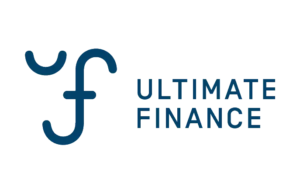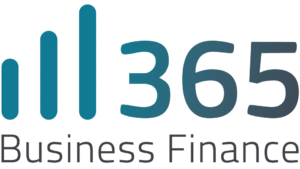Semi-Commercial Property Investment Finance
Long-term finance for investment in semi-Commercial Property
Semi-Commercial Property Investment Finance
Semi-Commercial Property Investment Finance facilitates the acquisition or refinancing of mixed-use properties that combine commercial and residential spaces. These properties often feature retail or office spaces on the ground floor with residential accommodations above, presenting excellent investment opportunities. Our finance options cater to both seasoned investors and newcomers to mixed-use property investment, offering a suite of solutions tailored to the specific needs of this property type and the individual investor. A variety of Semi-Commercial Property Investment Finance solutions are available, each designed to complement the unique aspects of these properties. In some instances, alternative financing options, such as select Buy-To-Let Finance products or Property Portfolio Finance for more extensive portfolios, may provide a suitable solution. Regardless of the finance product chosen, the primary source of repayment typically arises from the rental income generated by the property. Both borrowers and lenders face considerations unique to this asset class. Below, we offer essential information encompassing principal considerations and critical factors regarding Semi-Commercial Property Investment Finance, intended for your review before initiating the application process with us.
YOUR PROJECT, OUR MISSION
Supporting UK businesses with access to Finance That Fits























Mortgage Types
Navigating through the array of financing options for semi-commercial properties can be a complex endeavor, but don’t worry – we’re here to help. Below is an overview of the mortgage types you might consider for a semi-commercial property investment:
Interest-Only Mortgages: Common for semi-commercial property financing, these mortgages require payment of only the interest each month. This can be particularly beneficial for cash flow management in properties where rental yields are typically higher. The capital is usually repaid through refinancing or the property’s sale at the end of the term.
Repayment Mortgages: A repayment mortgage involves monthly payments of both interest and capital, leading to an unencumbered property at the end of the mortgage term. This could be a strategic choice for long-term investors focused on building equity.
Fixed-Rate Mortgages: Offering an interest rate that remains constant for a set period (e.g., 2, 5, or 10 years), fixed-rate mortgages provide predictability in your financial planning, shielding you from market fluctuations during the fixed term.
Variable-Rate Mortgages: With rates that can change over time, these mortgages reflect the current market conditions, offering the potential for lower rates but also the risk of rate increases.
Tracker Mortgages: These mortgages track an external rate, such as the Bank of England base rate, plus a set margin. They offer transparency and can be advantageous when external rates are low.
Discount Mortgages: Starting with a discount on the lender’s standard variable rate, these mortgages can lower initial costs, which might benefit short-term investment strategies.
It’s important to note that there are many products in the market that can fund a semi-commercial property which are not specifically branded as such. For instance, certain Buy To Let Mortgages or Commercial Mortgages could be well matched. Moreover, if your property is part of a larger portfolio, Property Portfolio Finance could offer a consolidated solution that simplifies your holdings under one loan facility.
At Fit To Lend, we understand that each client and each investment is unique, so the financing solution needs to be carefully considered and well matched. That’s why a detailed discussion about your specific requirements is crucial. Let’s start a conversation now about how we can help.
Borrower Type
The borrower structure can be pivotal in semi-commercial property financing, as it influences tax treatment and loan availability. With a limited company structure, rental profits from the property are taxed under corporation tax, and mortgage costs can be offset against profits, thus reducing the tax payable.
In personal ownership, personal tax rates apply to the rental income generated by the property, and in recent years changes to mortgage interest relief have increased tax burdens for some landlords.
The choice of structure may also affect borrowing capacity. Lenders typically consider the net rental income available for loan repayments, meaning that post-tax income can significantly impact the amount they are willing to lend. For personal owners, individual tax bands can play a role in these calculations, possibly affecting available loan amounts.
Balancing these factors can be complex, and we recommend that you obtain tax advice. Whatever structure you adopt, the financing solution needs to be well matched, and we can help you with that.
The Lender's View
Lenders exercise a high degree of diligence when assessing semi-commercial property finance applications, given the unique nature of these investments. Here are some examples of the things that the lender may scrutinise:
Financial Health and Viability:
The financial robustness of the semi-commercial property is analysed through its loan-to-value ratio and the sufficiency of rental income to cover loan repayments. A strong rental yield can positively influence a lender’s decision by demonstrating that loan repayments can be comfortably covered by the rental income. In addition to the rents that are actually being achieved (passing rents), the lender will also place significant weight on the valuer’s opinion of market rent value, and typically affordability will be assessed on the lower of the passing rents and the valuer’s opinion of market rent value.
Location, Demand, and Occupancy History:
The commercial component of a semi-commercial property may be more vulnerable to void periods. Commercial tenants that are well-matched to the property type can be harder to find than residential tenants, so lenders may consider demand for the particular commercial property type, the length of time remaining on the current lease, and the financial strength of the tenant. They will also look at whether the property has a good occupancy history, and how well the occupancy history has been sustained under the present management, demonstrating the borrower’s experience and success in managing the particular property and tenant type.
Borrower Experience and Expertise:
Experience managing semi-commercial properties is particularly valued because of the complexities involved in handling both commercial and residential spaces. Lenders may look favourably on applicants with a history of efficiently managing such properties, or those who have support from a professional managing agent. The lender may also assess the borrower’s plans for managing the regulatory and maintenance requirements of such properties, as well as their plans for managing commercial tenants and leases.
Income Generation and Asset Liquidity:
Lenders prioritise the property’s capacity to generate adequate income for servicing the loan. They’ll assess the property’s historical financial performance and the likelihood of continued demand for both commercial and residential tenancies. The liquidity of the property may also be a consideration, reflecting its potential resale value and ease of exit should circumstances necessitate it. Additionally, lenders will evaluate market trends and location-specific factors that could affect the property’s performance and risk profile.
Licensing and Planning Consent:
If parts of the property have been converted or redeveloped, for example, if the upper parts have been converted from commercial to residential use, or if they have been extended, then the lender or their solicitors will be looking to confirm that the appropriate planning consents are in place where required. If the residential part of the property functions as an HMO, then any additional requirements that this may imply, such as licensing, will also be reviewed by the lender or their solicitors. With regard to the operation of the commercial part of the property, depending on the current commercial use, they will also want to confirm that this is consistent with the property’s planning consents. Energy Performance Certificate (EPC) requirements relating to both the commercial and residential parts may vary, but requirements for both have continued to become more stringent, and lenders will have expectations in this regard.
The application, approval, and completion processes
The application process for Semi-Commercial Property Investment Finance involves preparation and presentation of required documentation. Fit to Lend offers comprehensive support throughout this journey, beginning with an assessment of the borrower’s circumstances, needs, and plans. We specialize in identifying the most suitable product, ensuring it aligns with the borrower’s objectives.
Our role extends beyond mere facilitation; we strive to craft a credible and compelling proposal to enhance the likelihood of lender approval, and to obtain and offer on terms most favorable to our client. By remaining actively involved at every stage—liaising with borrowers, lenders, valuers, and solicitors—we navigate the complexities of the process to meet your completion timeline. Our commitment is to ensure that from initial application to final completion, every step is handled with diligence and expertise, minimizing delays and aligning with your investment goals.
working with lenders, for borrowers
Supporting UK businesses with access to Finance That Fits
Other Finance Solutions
questions
&
Answers
Yes, we charge a transparent and fair fee of 0.5% that's typically payable at the end when the loan completes, and in our opinion borrowers should be extra cautious if a broker ever offers to work without charging fee. In these circumstances the broker's income may be based solely on commissions paid by lenders, and commissions vary significantly between different lenders, so the borrower needs to be confident that the broker is not inappropriately influenced by lender commissions. It is critically important that the broker has the borrowers best interests front & centre when presenting choices and making recommendations. Our fee is modest, and if you take a look at what it represents as a portion of borrowing costs over the loan term, you'll see why we're confident it will be far outweighed by the savings we achieve for borrowers and the value of the close support and guidance we provide.
Both experienced investors and newcomers to semi-commercial property investment and both individuals and companies can apply.
make
an
enquiry
News, Views And Finance Clues






working with lenders, for borrowers
Supporting UK businesses with access to Finance That Fits
Other Commercial Finance Solutions
More News, Views And Finance Clues






EXPERT EVALUATION, EFFECTIVE EXECUTION
Supporting UK businesses with access to Finance That Fits






































